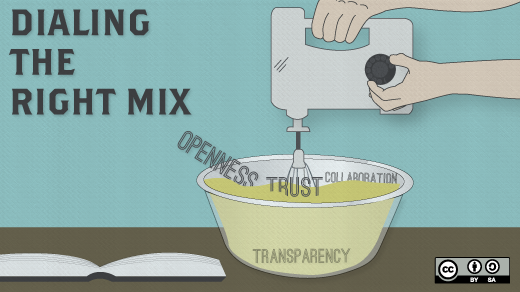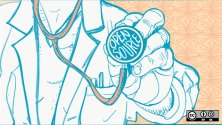Tracing the career path of Dr. Kongkiat Kespechara is like reading a treasure map: there are twists and turns and surprises all along the way, but promises an unfolding bounty at the end. Here are some of his current activities: Dr. Kespechara is a still-practicing MD, a software entrepreneur, an open source pioneer, a force in economic development, a big data processor, a nutritionist, an agriculturist and a retailer. Let me explain.
As a practicing physician in Phuket, he became aware of some of the struggles facing hospitals. At one point the Thai government wanted to modernize all the hospitals and demanded that Information Technology be adopted right away. Then he saw the budget. No significant increase was given to help hospitals meet this expensive demand. After some ruminating he realized most of the costs would be tied up in creating the information infrastructure to capture patient records. He thought it would be a huge help to all of the hospitals if an open source solution was developed so they could all share, and called it Hospital OS.
Since there was not much going on with software development on the tourist-driven island of Phuket, he ended up developing a Phuket Software Park to stimulate a software scene. Then he worked with the local university to support this program.
Hospital OS was not funded externally; he just wanted to pay a developer to come on-site to customize and install the system and then train key staff on how to use it. This solution was so readily adopted that his programmers were on constant tour around the country doing installations.
Dr. Kespechara was realistic too. He knew that most hospitals would not back up their data regularly, so he configured his system to back up each hospital in the middle of the night. But this led to a new insight: he now had data that reflected what was happening in the rural communities of Thailand. In fact, after a few years he was able to not only help hospitals staff appropriately in preparation for outbreaks, but was actually able to predict what was coming.
Processing big data became quite a tool that extended beyond emergency needs. Overtime he was able to start targeting the growing health risks for Thailand. As in other parts of the world, a key health challenge is the rising incidence of diabetes. This led Dr. Kespechara to a look at the Thai diet, and a key culprit jumped out: white rice.
By plotting blood sugar values, he learned that it quickly spiked after eating white rice. In searching through older forms of rice he discovered some heirloom varieties that was not only much healthier in vitamins, but it kept blood sugar levels low enough that even diabetics would not suffer.
Next thing you know Dr. Kespechara is working with farmers to grow these heirloom rices. He was disturbed by the amount of steroids used in growing rice. Apparently adding steroids cuts the growing season from 90 days to 75 days, so he worked with farmers to rediscover old techniques in growing rice organically, chraging a premium price, to alleviate cash flow pressures for rural farmers.
The Pensook varieties of rice are loved by foodies, but it is different enough that it requires revised recipes to fit into the Thai palate. Dr. Kespechara felt the only way to create demand for this new rice was to create a retail environment where chefs could demonstrate cooking with it and get people's mouths watering.
Of course being in the retail world, he now had to start thinking about costs. Apparently one of the challenges in the process is the expense of the husking machines... and so the journey continued. Each of these landmarks has realized significant success, despite the seemingly complicated process.
Today, Hospital OS is a massive program with international recognition. Major health concerns are now flagged by big data. Farmers are now earning more and the Thai diet is welcoming a tastier, healthier rice.
Originally posted on Inventive Culture. Reposted under Creative Commons.






1 Comment